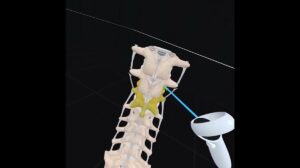NEW YORK (Reuters Health) – The results of a case-control study suggest that silicone breast prostheses may increase the risk of developing anaplastic large T-cell lymphoma (ALCL) of the breast. However, the authors emphasize that because the malignancy is so rare in general, the absolute risk is still very low.
Dr. Daphne de Jong, from The Netherlands Cancer Institute, Amsterdam, and colleagues evaluated the association after identifying two patients who had ALCL in the fibrous capsule surrounding their silicone breast implants. Although similar cases had been reported in the literature, no formal studies had examined the topic.
A search of a Netherlands pathology database identified 11 woman (median age 40 years) who were diagnosed with ACLC of the breast from 1990 to 2006. Each case patient was matched by age and year of diagnosis to one or more controls (n = 35) with other types of lymphomas in the breast.
Five of the case patients had received bilateral silicone breast prostheses 1 to 23 years prior to diagnosis. In all five, the prostheses were placed for cosmetic reasons.
The most common lymphoma in the control group was diffuse large B-cell lymphoma, followed by mucosa-associated lymphoid tissue-type lymphoma. Just 1 of the 35 control patients had a breast implant prior to their lymphoma diagnosis.
“The odds ratio for ALCL in the breast associated with silicone breast prosthesis placed for cosmetic reasons was 18.2,” the investigators calculate.
As noted, though, the absolute risk of ALCL with silicone breast implants is exceedingly small. The authors calculate that just 0.1 to 0.3 cases per 100,000 women with implants would arise per year.
“These findings must be considered preliminary and hypothesis-generating and are not strong enough to definitively conclude that breast implants predispose women to non-Hodgkin lymphoma,” Dr. Andrew M. Evens and Dr. Brian C.-H. Chiu, from Northwestern University, Chicago, write in an accompanying editorial.
“However,” they add, “given that silicone is immunogenic, further evaluation of breast implant-related lymphoma is warranted, particularly by studies with statistical power, sufficient follow-up, and information on other factors.”
Reference:
JAMA 2008;300:2030-2035,2059-2061.




